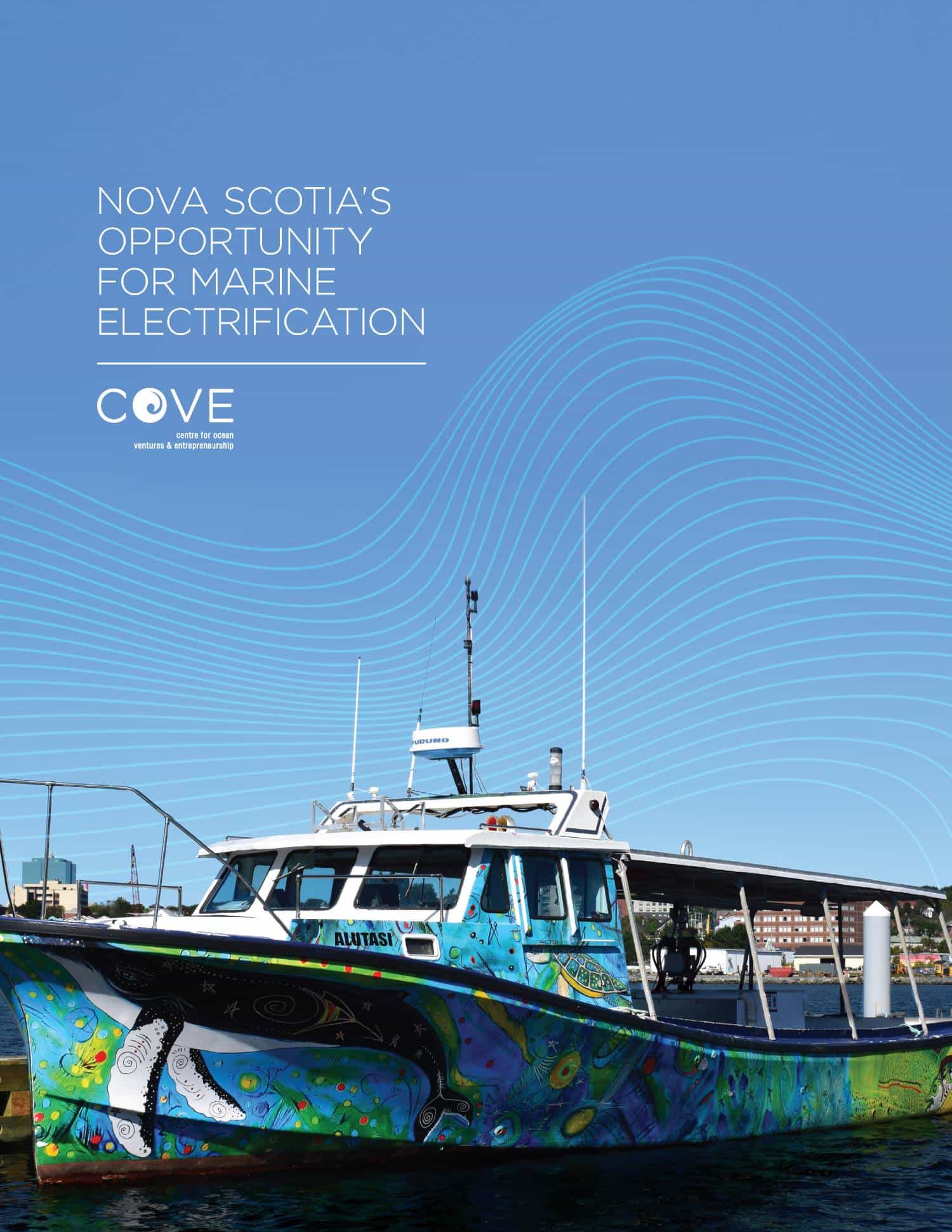COVE study finds Nova Scotian industry has strong potential to deliver vessel electrification technology to Atlantic Canada and the global market
Nova Scotia’s ocean sector has significant market potential to develop and deliver vessel electrification and associated technologies according to a new study, with COVE poised to enable local firms in grasping commercial opportunity and accelerating the pace of electric vessel adoption.
The Nova Scotia’s Opportunities for Marine Electrification Study was developed by COVE and commissioned by the Province of Nova Scotia.
“Marine vessel decarbonization is a quickly advancing global industry that many Nova Scotia companies are investing in, developing technologies, and leading demonstration projects to contribute to its use as a commercial norm,” said Melanie Nadeau, CEO of COVE. “With the information included in this study, as well the release of our Ocean Enterprise Study, it is no surprise that there has been a surge of high-tech companies in Nova Scotia focused on decarbonization.”
By reviewing market activity and technology trends, and engaging the local supply chain, the study provides foundational information on the potential for a marine vessel electrification industry in Nova Scotia and methods to encourage success.
The study considers experiences with marine transportation in other countries and Canadian provinces, regional market conditions, and global technology trends. Approaches and technologies encompassed alternative fuels like hydrogen and ammonia, fuel cell technology, battery storage advancements, and infrastructure and supply considerations.
“It’s encouraging to see such a strong interest in clean marine technologies from many Nova Scotia companies in the marine sector. The Province has ambitious climate change goals to reduce greenhouse gas emissions and the electrification of marine vessels is a great step toward achieving that goal,” said Tory Rushton, Minister of Natural Resources and Renewables.
A significant commercial barrier identified in the study is access to enabling infrastructure and charging facilities. COVE is now investigating options for agile marine charging infrastructure to be located on-site, a key enabler for the development of this industry.
Key findings of the Nova Scotia’s Opportunities for Marine Electrification Study include:
- Marine vessel decarbonization is a quickly advancing global industry. Nova Scotia, and more broadly Atlantic Canada, is primed to implement vessel electrification and grasp potential market opportunities. With a readily serviceable fleet of over 20,000 in Eastern Canada, the time-limited opportunity exists for Nova Scotia industry to act as a technology provider for pending demand.
- The recent surge of new vessels built with diesel-electric propulsion shows that owners and operators are seeing that this allows for a less invasive and less costly retrofit to a hybrid or fully electric solution. This is sensible given marine vessels have an average operational life span of 20-50 years.
- Atlantic Canadian industry input from a rapidly growing ecosystem of operators, boat builders, technology companies, and naval architects shows they are actively engaged in a broad set of Nova Scotia marine electrification demonstration projects, and that access to enabling infrastructure and charging facilities has been seen as a commercial barrier.
- Alternative fuels, including hydrogen and ammonia, have real opportunity to decarbonize long-haul voyages. Opportunities for hydrogen remain relevant globally and are more nascent in Nova Scotia.
- While officials have their eye on regulatory innovation, keeping up with this industry’s rate of change can accelerate the pace of electric vessel adoption by providing a higher level of certainty and reducing cost.
“COVE’s study on marine vessel electrification allows my voice to be heard as a Veteran and as an Indigenous Business owner. I believe that my business is prepared to capture the operational and environmental advantages of vessel electrification and quickly scale up our prototypes for development,” said Adam Kennedy, President and Founder of Sma’knis Maritime Safety & Security. “Working with COVE and partners to address commercial barriers will further expand the opportunities and support Sma’knis to succeed. Our company is pleased to be supporting and collaborating with strategic partners on the leading edge of these emerging technologies. The opportunities are here and now to start reducing the impact on our planet by developing marine electrification”
The Nova Scotia’s Opportunities for Marine Electrification Study was launched today, 17 February 2022, to coincide with the virtual panel discussion ‘Charging Forward’ at COVE’s Ocean Connector, a monthly networking event that brings together the global ocean community to discuss ideas, opportunities and innovation.
The Nova Scotia’s Opportunities for Marine Electrification Study can be found at:


